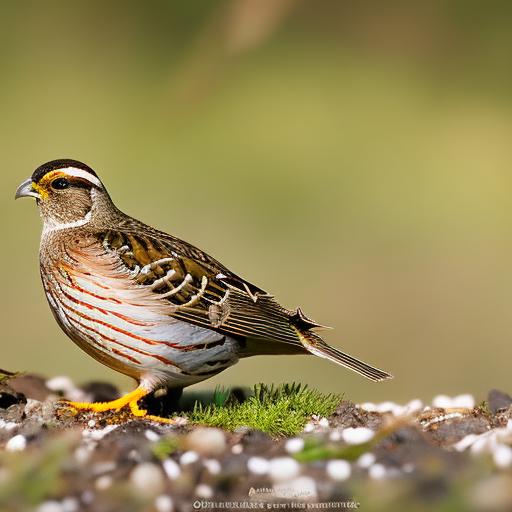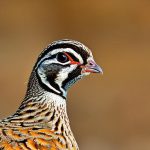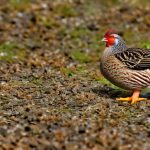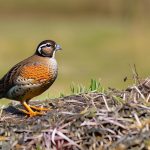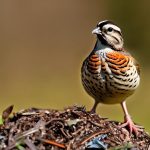When it comes to raising quail, it’s important to first understand the local regulations and laws regarding keeping these birds. Different regions may have specific rules and guidelines in place to ensure the well-being of the quail and to prevent any potential issues with neighbors or the environment. Some areas may require permits or licenses to keep quail, while others may have restrictions on the number of birds you can keep or the type of housing they require. It’s crucial to research and understand these regulations before embarking on your quail-raising journey to avoid any legal complications.
Furthermore, understanding the local regulations can also help you make informed decisions about the type of quail species you can keep. Some regions may have restrictions on keeping certain species of quail due to environmental concerns or potential impact on native wildlife. By familiarizing yourself with the local regulations, you can ensure that you are choosing a quail species that is allowed in your area and that you are providing a suitable habitat for them. Overall, being aware of the local regulations will not only help you stay compliant with the law but also contribute to the responsible and ethical care of your quail.
Key Takeaways
- Understanding the local regulations is crucial before starting a quail farming venture to ensure compliance with laws and permits.
- Choosing the right quail species involves considering factors such as egg production, meat quality, and adaptability to local climate.
- Creating a suitable habitat for quails requires providing adequate space, shelter, and protection from predators.
- Providing proper nutrition is essential for the health and productivity of quails, including a balanced diet of grains, greens, and protein.
- Ensuring health and wellness involves regular monitoring for diseases, proper hygiene, and access to clean water and suitable living conditions.
- Managing quail behavior requires understanding their social dynamics, nesting habits, and ways to minimize stress in the flock.
- Connecting with local quail enthusiasts can provide valuable insights, support, and networking opportunities for sharing knowledge and resources.
Choosing the Right Quail Species
When it comes to choosing the right quail species for your needs, there are several factors to consider. Different species of quail have varying requirements in terms of space, housing, and care, so it’s essential to select a species that aligns with your resources and goals. For example, if you have limited space, you may want to consider smaller species such as Japanese quail, which are well-suited for confinement and can thrive in smaller enclosures. On the other hand, if you have ample space and are looking for quail with striking plumage, you might opt for species like the Coturnix or Bobwhite quail.
Additionally, it’s important to consider the purpose of raising quail when choosing the right species. If you are interested in quail for their eggs or meat, you may want to select a species known for its prolific egg-laying or larger size. Conversely, if you are raising quail for ornamental purposes, you may prioritize species with unique coloration or distinctive features. By carefully evaluating your needs and resources, you can make an informed decision about the right quail species for your specific situation.
Creating a Suitable Habitat
Creating a suitable habitat for your quail is essential for their health and well-being. The habitat should provide adequate space for the quail to move around freely, as well as protection from predators and the elements. When designing a habitat for your quail, consider factors such as ventilation, lighting, and temperature control to ensure a comfortable environment. Additionally, providing suitable nesting areas and substrate for dust bathing will help meet the natural behaviors and needs of the quail.
Furthermore, it’s important to consider the social dynamics of quail when designing their habitat. Quail are social birds that thrive in groups, so providing ample space and resources for social interaction is crucial. Ensuring that there are multiple feeding and watering stations can help prevent competition and aggression among the birds. Additionally, incorporating hiding spots and visual barriers can help reduce stress and promote a sense of security within the habitat. Overall, creating a suitable habitat for your quail involves careful consideration of their natural behaviors and needs to ensure their overall well-being.
Providing Proper Nutrition
Proper nutrition is essential for the health and productivity of your quail. A well-balanced diet is crucial for supporting egg production, growth, and overall vitality in quail. When it comes to feeding your quail, it’s important to provide a high-quality commercial feed specifically formulated for quail. These feeds are designed to meet the nutritional requirements of quail and typically contain essential vitamins, minerals, and protein necessary for their well-being.
In addition to commercial feed, it’s important to supplement your quail’s diet with fresh greens, fruits, and vegetables to provide additional nutrients and enrichment. Offering grit or small stones can also help aid in digestion by grinding up food in the gizzard. Furthermore, providing access to clean water at all times is crucial for quail health and hydration. Regularly monitoring your quail’s food intake and adjusting their diet as needed based on their age, reproductive status, and overall health is essential for ensuring proper nutrition.
Ensuring Health and Wellness
Ensuring the health and wellness of your quail is paramount for their longevity and productivity. Regular health checks and observation of your quail can help identify any potential issues early on. It’s important to monitor their behavior, appetite, and droppings for any signs of illness or distress. Additionally, providing a clean and well-maintained habitat can help prevent the spread of diseases and parasites among your quail.
Furthermore, practicing good biosecurity measures can help minimize the risk of introducing diseases to your quail flock. This includes quarantining new birds before introducing them to existing flocks, as well as implementing strict hygiene practices when handling equipment or interacting with other poultry. Additionally, working with a veterinarian who has experience with poultry can provide valuable guidance on preventative care and treatment options for your quail. By prioritizing their health and wellness, you can ensure that your quail are thriving and productive members of your flock.
Managing Quail Behavior

Understanding and managing quail behavior is essential for maintaining a harmonious flock and promoting their overall well-being. Quail are social birds that thrive in groups, so providing ample space and resources for social interaction is crucial. Additionally, observing their behavior can help identify any potential issues such as aggression or stress within the flock. Providing hiding spots and visual barriers can help reduce stress and promote a sense of security within the habitat.
Furthermore, managing quail behavior also involves addressing any potential conflicts or aggression within the flock. Providing multiple feeding and watering stations can help prevent competition among the birds. Additionally, ensuring that there are enough nesting areas can help reduce stress during breeding season. By understanding their natural behaviors and needs, you can effectively manage quail behavior and create a harmonious environment for your flock.
Connecting with Local Quail Enthusiasts
Connecting with local quail enthusiasts can provide valuable support and resources for your quail-raising endeavors. Joining local poultry or quail clubs can offer opportunities to network with experienced breeders and enthusiasts who can provide guidance and advice based on their own experiences. Additionally, attending poultry shows or exhibitions can provide valuable insights into different quail species, breeding techniques, and best practices for raising healthy quail.
Furthermore, local quail enthusiasts can also be a valuable source of information on local regulations and laws regarding keeping quail in your area. They may be able to provide insights into any specific requirements or restrictions that you need to be aware of when raising quail. Additionally, connecting with local enthusiasts can also provide opportunities for sourcing high-quality birds or eggs from reputable breeders in your area. Overall, building connections with local quail enthusiasts can provide valuable support and resources as you embark on your journey of raising healthy and thriving quail.
In conclusion, raising quail requires careful consideration of local regulations, choosing the right species, creating a suitable habitat, providing proper nutrition, ensuring health and wellness, managing behavior, and connecting with local enthusiasts. By understanding these key aspects of quail care and husbandry, you can create a fulfilling and successful experience in raising these fascinating birds.
If you’re interested in keeping quail in King County, you may also want to explore the fascinating world of breeding geese. Poultry Wizard has an insightful article on the incubation period for goose eggs that provides valuable information for anyone looking to venture into geese breeding. Check out the article here to learn more about this captivating aspect of poultry farming.
FAQs
What are the regulations for keeping quail in King County?
In King County, regulations for keeping quail may vary depending on the specific zoning laws and regulations in your area. It is important to check with your local government or county extension office for specific guidelines and permits required for keeping quail.
What are the housing requirements for keeping quail in King County?
Quail require a secure and predator-proof housing structure that provides adequate space for the birds to move around and access to fresh air and sunlight. The housing should also include nesting boxes, perches, and a designated area for dust bathing.
What do quail eat and how should they be fed in King County?
Quail are omnivores and require a balanced diet of commercial quail feed, supplemented with fresh greens, grains, and protein sources. It is important to provide access to clean water at all times and ensure that the feed is appropriate for the age and type of quail being kept.
What are the health considerations for keeping quail in King County?
Quail require regular health checks and access to veterinary care when needed. It is important to monitor for signs of illness, provide a clean living environment, and practice good biosecurity measures to prevent the spread of disease.
Are there any specific predator concerns for keeping quail in King County?
Predators such as raccoons, foxes, and birds of prey pose a threat to quail. It is important to secure the housing with sturdy fencing and consider using deterrents such as motion-activated lights or sound devices to deter predators.
What are the benefits of keeping quail in King County?
Keeping quail can provide a sustainable source of fresh eggs, natural pest control in the garden, and the enjoyment of observing these unique and interesting birds. Additionally, quail keeping can be a rewarding hobby and educational experience for individuals and families.
Meet Walter, the feathered-friend fanatic of Florida! Nestled in the sunshine state, Walter struts through life with his feathered companions, clucking his way to happiness. With a coop that’s fancier than a five-star hotel, he’s the Don Juan of the chicken world. When he’s not teaching his hens to do the cha-cha, you’ll find him in a heated debate with his prized rooster, Sir Clucks-a-Lot. Walter’s poultry passion is no yolk; he’s the sunny-side-up guy you never knew you needed in your flock of friends!

